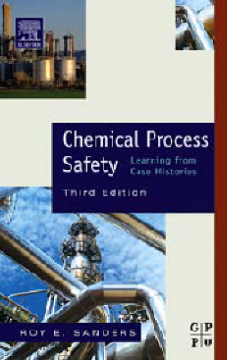
Additional Information
Book Details
Abstract
Gives insight into eliminating specific classes of hazards, while providing real case histories with valuable messages. There are practical sections on mechanical integrity, management of change, and incident investigation programs, along with a long list of helpful resources.
New chapter in this edition covers accidents involving compressors, hoses and pumps.
* Stay up to date on all the latest OSHA requirements, including the OSHA required Management of Change, Mechanical Integrity and Incident Investigation regulations.
* Learn how to eliminate hazards in the design, operation and maintenance of chemical process plants & petroleum refineries.
* World-renowned expert in process safety, Roy Sanders, shows you how to reduce risks in your plant.
* Learn from the mistakes of others, so that your plant doesn't suffer the same fate.
* Save lives, reduce loss, by following the principles outlined in this must-have text for process safety. There is no other book like it!
"Given his extensive background in an industrial setting as a team leader at the PPG Chlor-Alkali Plant in Louisiana and the safety course that he taught for AIChE with the well-known safety expert Trevor Kletz, the quantity of information of a practical nature contained in this book is not surprising." - Gary Bennett, Journal of Hazardous Materials
In my opinion, this is an outstanding book that will be useful to any engineer involved with process safety/loss prevention, process design, project engineering, process operations, and chemical plant maintenance. The price of the book is also very reasonable, making it affordable for almost everyone. - Stanley S. Grossel, Journal of Loss Prevention, March 2005
...you do not need any advanced knowledge to benefit from Roy's book; it is one for the foreman, the operator and the mechanic as well as the graduate engineer. Buy copies for your control room and workshop as well as one for your office and if you have the first edition it is time to replace by the third edition. However, expecting people to read and remember the book is not enough. The incidents should be discussed to determine if they could happen on your plant and, if so, what has been or should be done to prevent them happening. - Trevor Kletz - Author of What Went Wrong and Still Going Wrong
